Jesus is mysterious not just because of what we don’t know about him, but because of what we do know about him.
JOHN ORTBERGRelated Topics
Anand Thakur

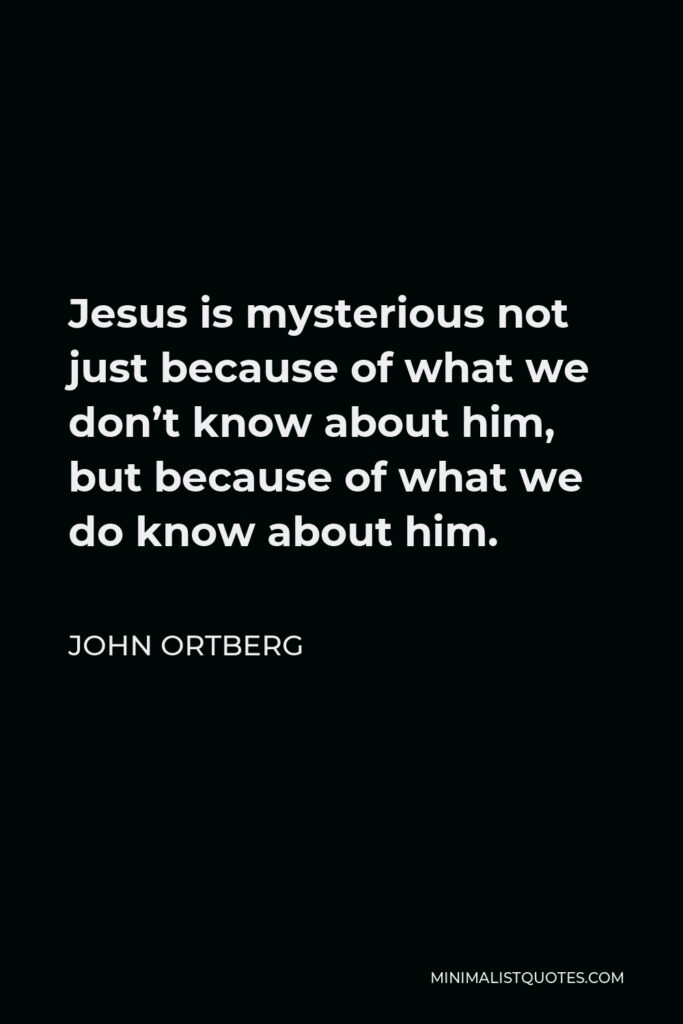

Jesus is mysterious not just because of what we don’t know about him, but because of what we do know about him.
JOHN ORTBERG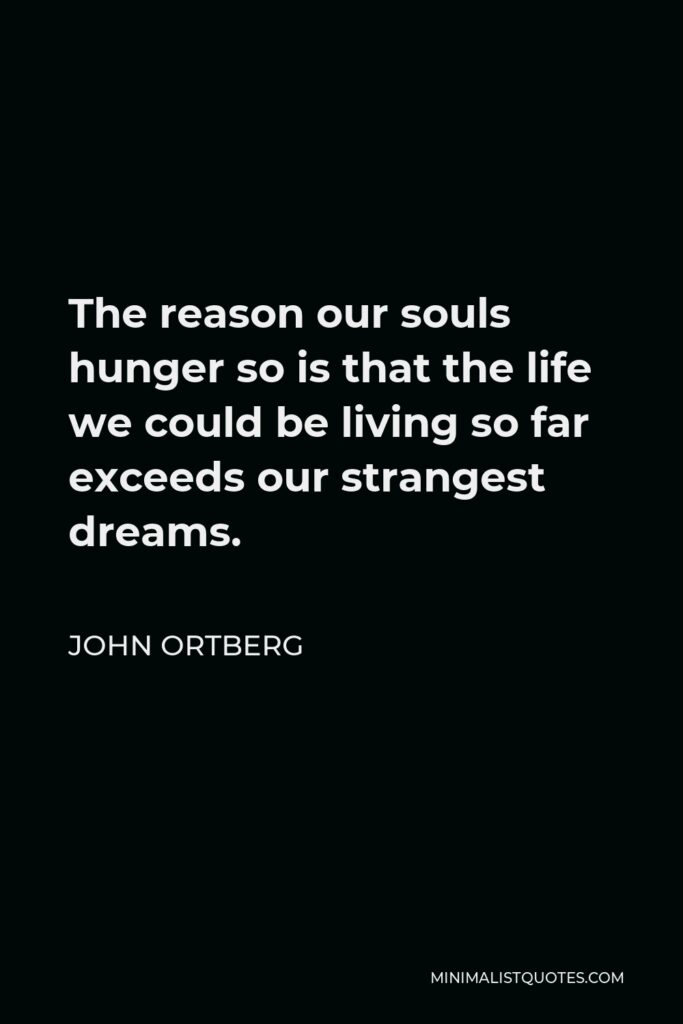

The reason our souls hunger so is that the life we could be living so far exceeds our strangest dreams.
JOHN ORTBERG

We are tempted to live under the illusion that somewhere out there are people who are normal.
JOHN ORTBERG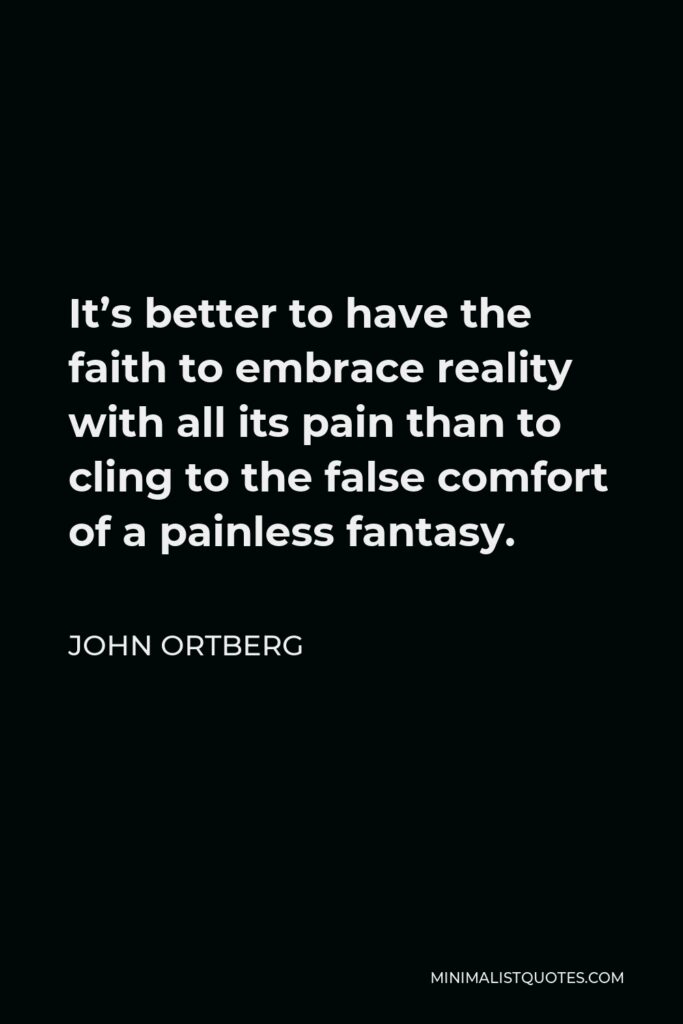

It’s better to have the faith to embrace reality with all its pain than to cling to the false comfort of a painless fantasy.
JOHN ORTBERG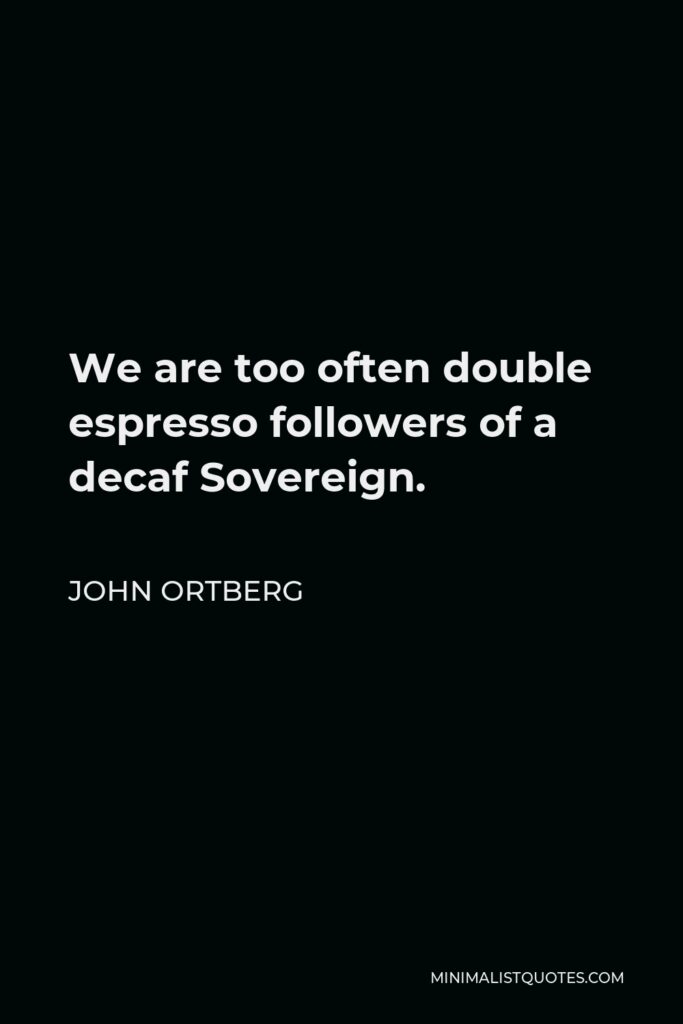

We are too often double espresso followers of a decaf Sovereign.
JOHN ORTBERG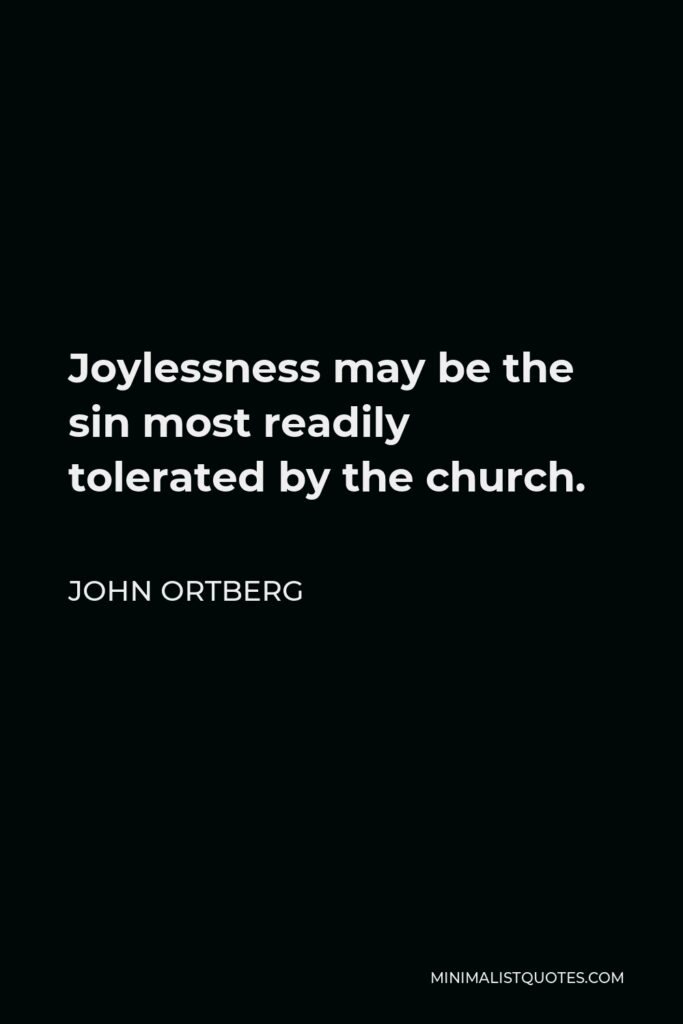

Joylessness may be the sin most readily tolerated by the church.
JOHN ORTBERG

The test of love is that it gives even when there is no expectation of a return.
JOHN ORTBERG

The good news as Jesus preached it is not just about the minimal entrance requirements for getting into heaven when you die. It is about the glorious redemption of human life-your life.
JOHN ORTBERG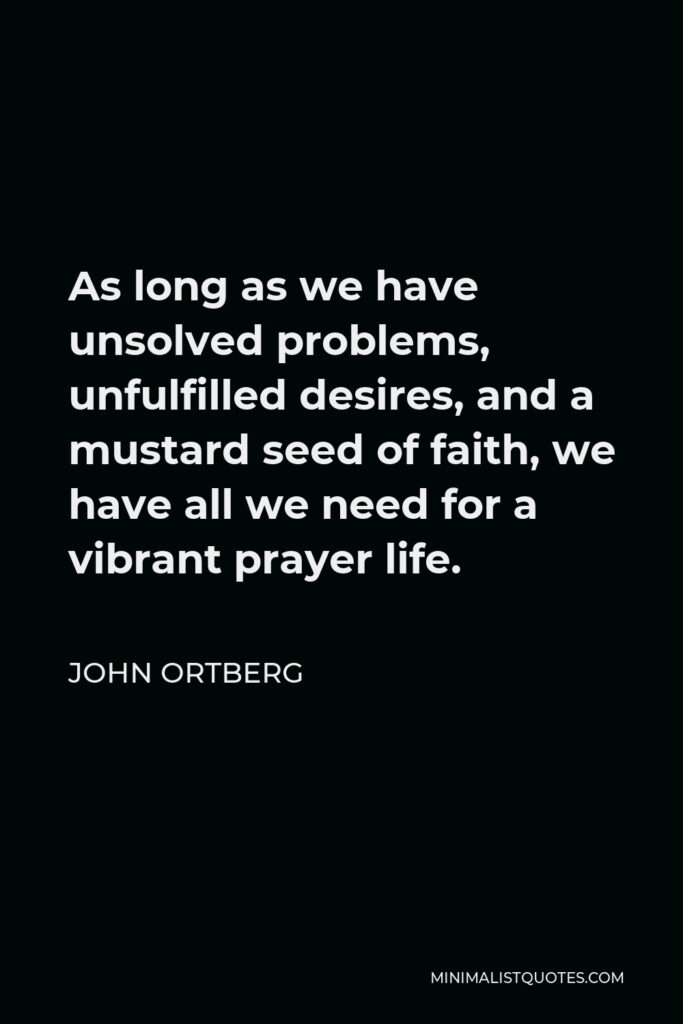

As long as we have unsolved problems, unfulfilled desires, and a mustard seed of faith, we have all we need for a vibrant prayer life.
JOHN ORTBERG

When I teach the formal curriculum, I have the chance to think about it ahead of time. I can rehearse it. I can illustrate it with self-deprecating humor and humble-sounding personal disclosure. I can try to make it comes out just right.
JOHN ORTBERG

In reality, each thought we have carries with it a little spiritual power, a tug toward or away from God. No thought is purely neutral.
JOHN ORTBERG

Art is built on the deepest themes of human meaning: good and evil, beauty and ugliness, life and death, love and hate. No other story has incarnated those themes more than the story of Jesus.
JOHN ORTBERG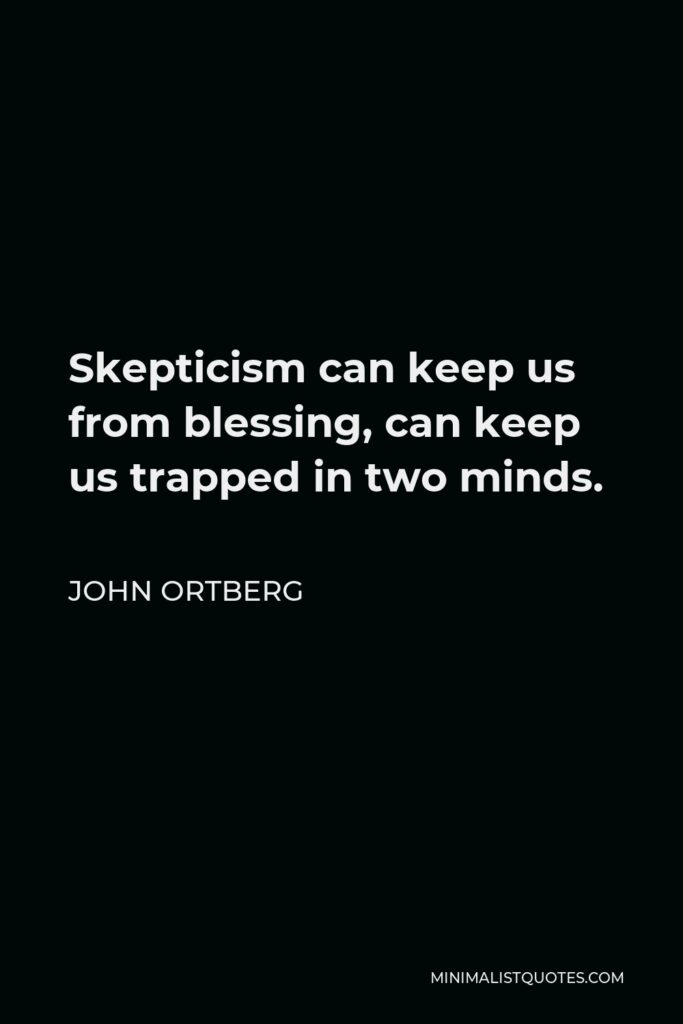

Skepticism can keep us from blessing, can keep us trapped in two minds.
JOHN ORTBERG

The decision to grow always involves a choice between risk and comfort. This means that to be a follower of Jesus, you must renounce comfort as the ultimate value of your life.
JOHN ORTBERG

Every day you and I walk through God’s shop. Every day we brush up against objects of incalculable worth to Him. People. Every one of them carries a price tag, if only we could see it.
JOHN ORTBERG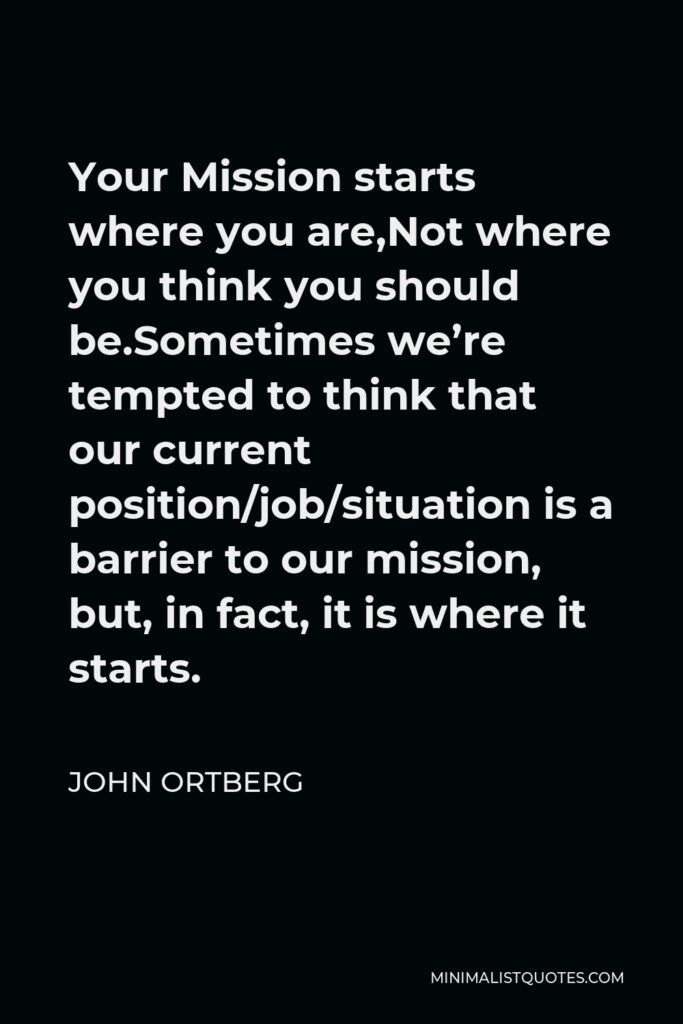

Your Mission starts where you are,Not where you think you should be.Sometimes we’re tempted to think that our current position/job/situation is a barrier to our mission, but, in fact, it is where it starts.
JOHN ORTBERG